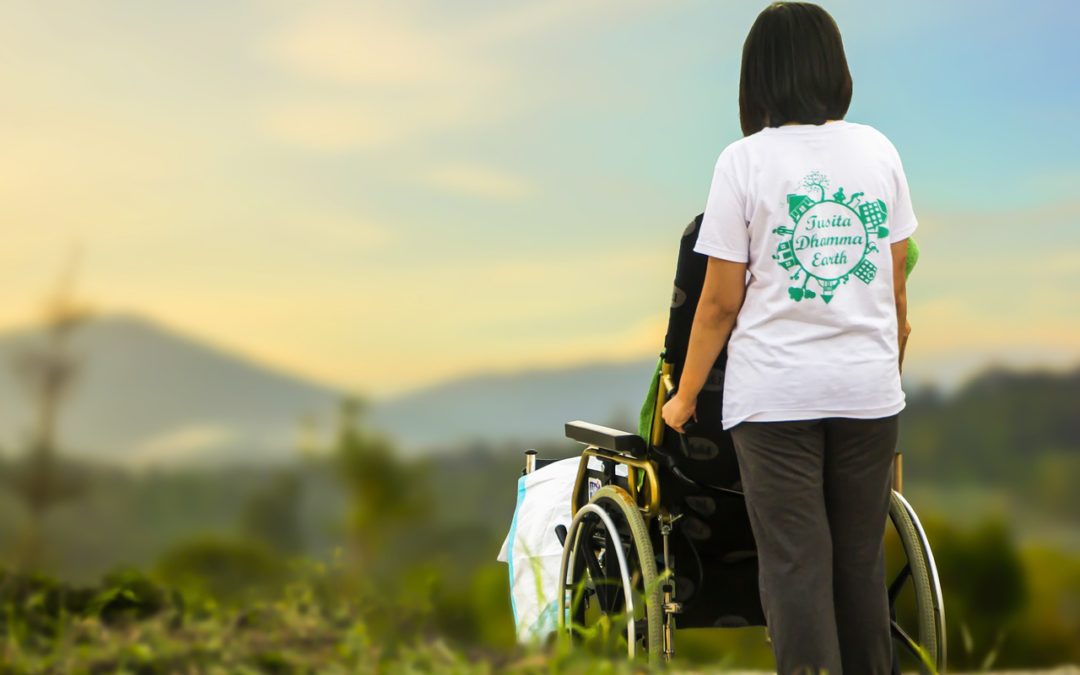Caregivers provide help to others in need. These people may include children with special needs or an adult family member or friend. Whoever the person is, however much you love them, caregiving is hard. Caregivers are often plagued with feelings of isolation and overwhelm.
During the holidays, caregivers may be feeling especially isolated as they may be unable to enjoy the usual holiday festivities. Moreover, when they do join a holiday festivity they may feel guilt, discomfort, and stress from being away from the person in their care.
Caregivers are often so focused on the wellbeing of others that they often neglect themselves. So during the holidays, and all year long, we have compiled a list of commitments that caregivers make to themselves to make sure they are cared for as well.

The Goal of Self-Care
In caring for ourselves we are better able to care for others. Therefore, in order to provide the best care possible to our loved ones, we have to be cared for first. This is often hard to do as our focus lies with others. However, for the long-term health and wellness of both parties, caregivers must care for themselves and be cared for.
Due to the often hectic lives of caregivers, the best way to remain vigilant about self-care is to create commitments.
Commitment #1: Be Grateful
Focusing on what you are grateful for does wonders in many areas of your life. It is specifically helpful when you face daily challenges that require understanding and patience.
When you first wake in the morning, try to choose one to three things that you are grateful for. Say “I am grateful for…” This could be something like your health or as simple as the warm cup of morning coffee.
Focusing on what you are grateful for is a great way to begin the day in a positive way.

Commitment #2: Eat Well
This can be challenging with limited time. However, if you are willing to put aside a few hours once a week to prep, this can be very doable. If you struggle to find the time to prep meals, then think about a meal delivery service that does the prep for you or ask a family member to help you out.
Carbohydrates are often the easiest food to grab, such as bread or crackers. However, it is important to create a well-balanced diet that includes healthy fats, protein, and an assortment of veggies.
Commitment #3: Exercise
Exercise is a great balancer and mood elevator. When you exercise your body releases endorphins positively affecting your mood and reducing your stress.
This can seem daunting if you are already exhausted from your daily duties. However, it does not have to be. A simple 10-minute walk outside, 10-minutes of elastic band training, or simply stretching are all great ways to get in some exercise.

Commitment #4: Take Breaks
Even if it just for five minutes or if you are able to carve out a few hours, it is important to take breaks to refocus on yourself and your own life. Take a break for your body, another for your mind, another for your spirit, and one for your heart daily.
Some examples include exercising, listening to music, talking with a friend, enjoying a cup of coffee, reading a special book, watching a favorite show, or simply sitting quietly.
Commitment #5: Seek and Accept Support
Many caregivers are reluctant to ask or accept help. But just because you can do something by yourself, does not mean you should or you have to.
Break down the tasks that overwhelm you or simple tasks that could free up some time for you. When you break down what you need help with into specific tasks it is much easier to ask for help and easier for others to be there for you. Look for the people in your life that either enjoy those activities or have some time to spare to help you. Don’t wait until you are overwhelmed or exhausted, ask and accept.
When you ask for help, make sure the person is well rested and has a moment to talk. Be prepared for them to refuse or be hesitant, you can just ask them to think about it and get back to you. In addition, us “I” and “would” statements. As an example, you could say “I would love to go for a walk, would you mind watching dad for an hour at noon?”
When you are questioning if you have time to care for yourself, remind yourself that caring for yourself is not selfish and actually makes you a better caregiver. When you are calm, fed, rested, and centered you are your best self. Taking care of yourself is an important part of your role as a caregiver. Make your commitments and watch life become more positive and more joyous.
New to caregiving?

